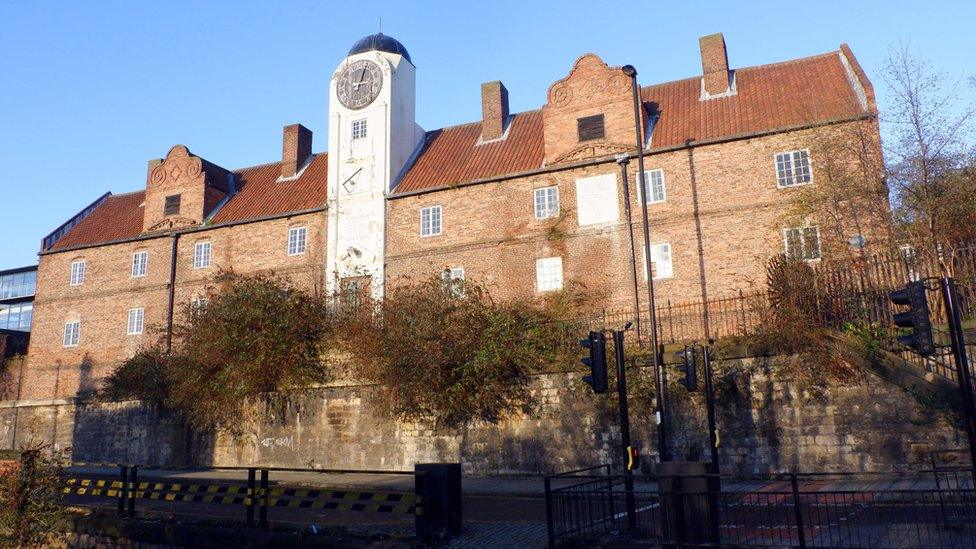Drag and Chinatown explored in working class heritage projects
- Published
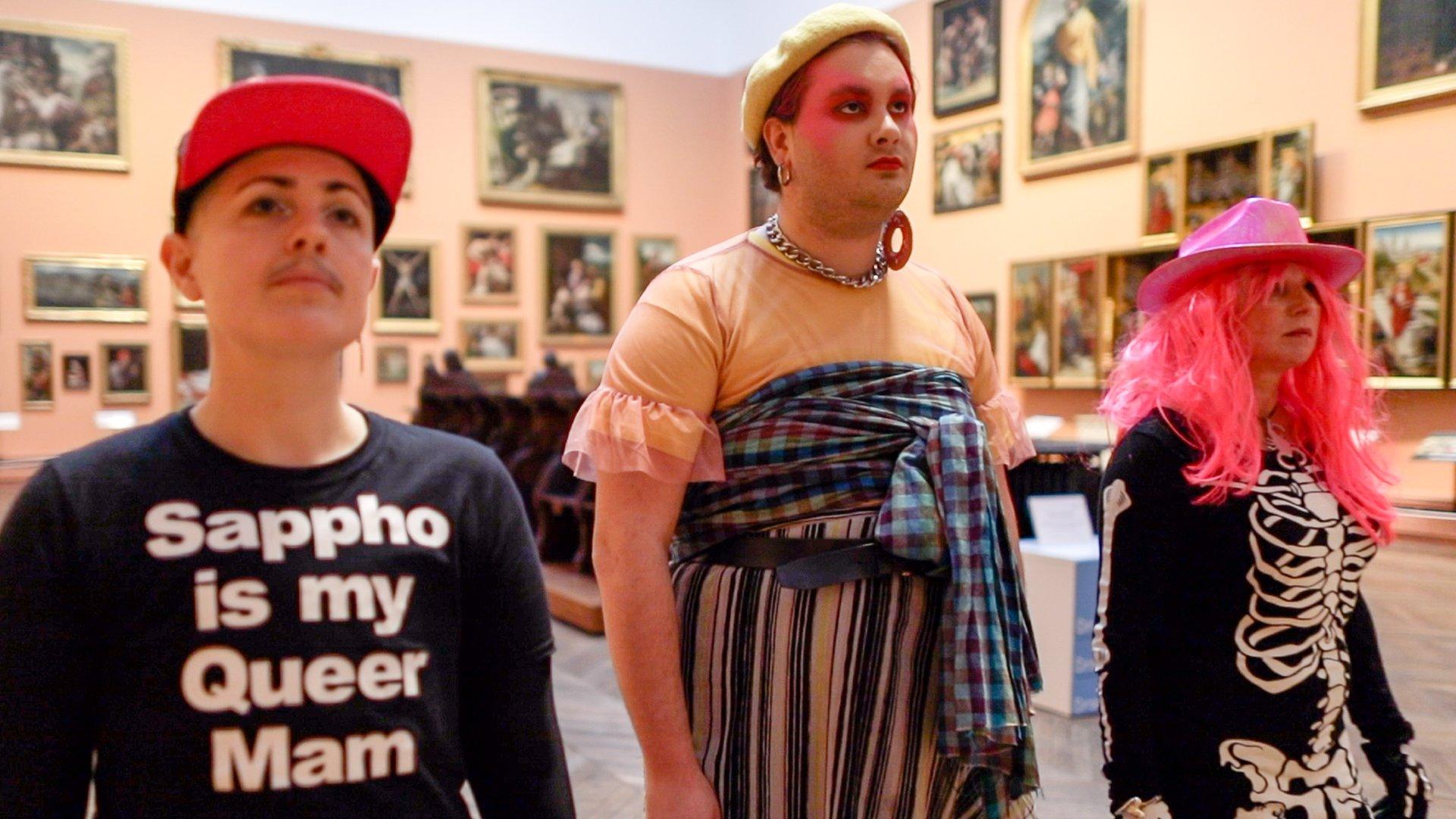
The LGBT+ Northern Social Group's project will look at the working class history of drag in the "Pink Triangle", also known as Newcastle's Gay Village
The stories of England's working class heritage will be told through 56 new projects funded by Historic England.
Histories including drag in Newcastle's Gay Village, life at Newhaven's Parker Pen factory and 40 years of London's Chinatown will be explored.
The public body has pledged £875,000 to a range of projects that will shine a light on the diversity of English heritage.
"Every community has a story to tell," Historic England said.
Other projects will explore the friendships of factory workers at the former C&T Harris Bacon Factory in Calne, Wiltshire; the pigeon fanciers of Skinningrove, North Yorkshire, and the diverse heritage of South Asian communities on Abel Street in Burnley.
Historic England chief executive Duncan Wilson said there were many hidden histories to uncover across the country.
He said: "This is the strength of our Everyday Heritage grant programme, which funds projects that are community-led and really engage with local people by empowering them to research and tell their own stories."
Newcastle's Gay Village
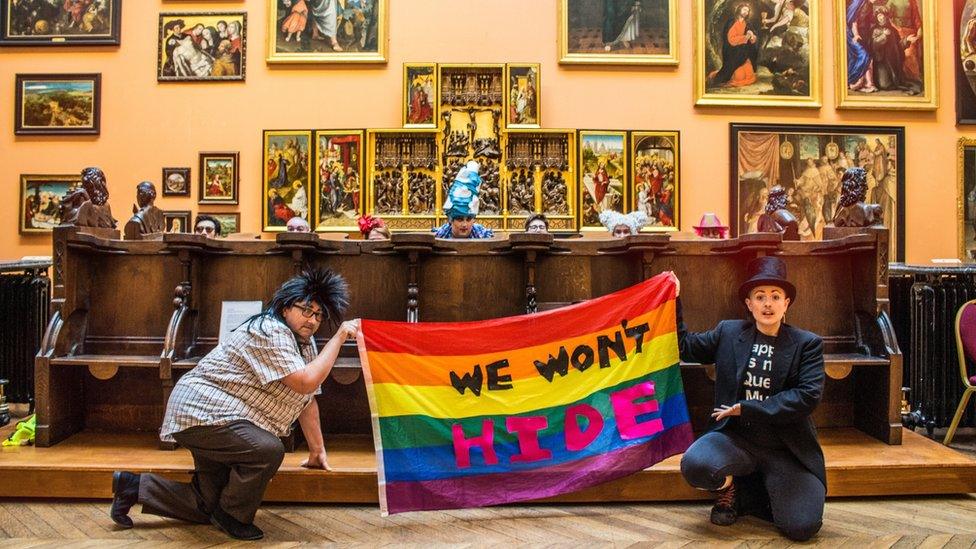
The LGBT+ Northern Social Group defines drag as "performance that explores, plays with or challenges traditional presentations, expressions of and ideas about, gender"
The LGBT+ Northern Social Group will use its Pink Triangles and Purple Circles project to explore working class histories of drag in Newcastle's Pink Triangle, also known as the Gay Village.
Drag will be framed as a folk art with roots in musical hall "dandy" or "fop" performers, 20th-century drag in working men's clubs, and the contemporary DIY drag scene.
The volunteer-led group includes around 2,600 members from the north-east of England and will coordinate community workshops to conduct personal research and creative activities.
Pub that hosted Iron Maiden
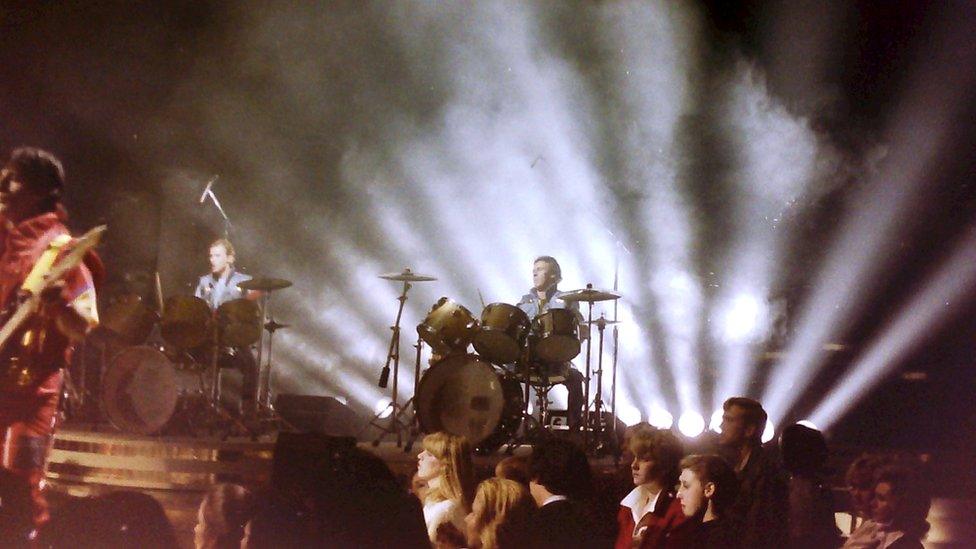
Canning Town's Bridge House Pub hosted Adam Ant for the American Bandstand TV show, an American weekly pop music TV show
Echoes from the Bridge, a project by Eastside Community Heritage, will celebrate the history of the Bridge House Pub that existed in Canning Town, East London, between 1975 and 1982.
The pub was pivotal for aspiring bands from working class backgrounds embarking on a music career, and became a leading live music venue which played host to an eclectic mix of sounds from Iron Maiden and Dire Straits to Cockney Rejects and Chas & Dave.
The project will capture the stories of people who came to the Bridge House Pub to socialise, listen to live music and perform.
European home of the Parker Pen
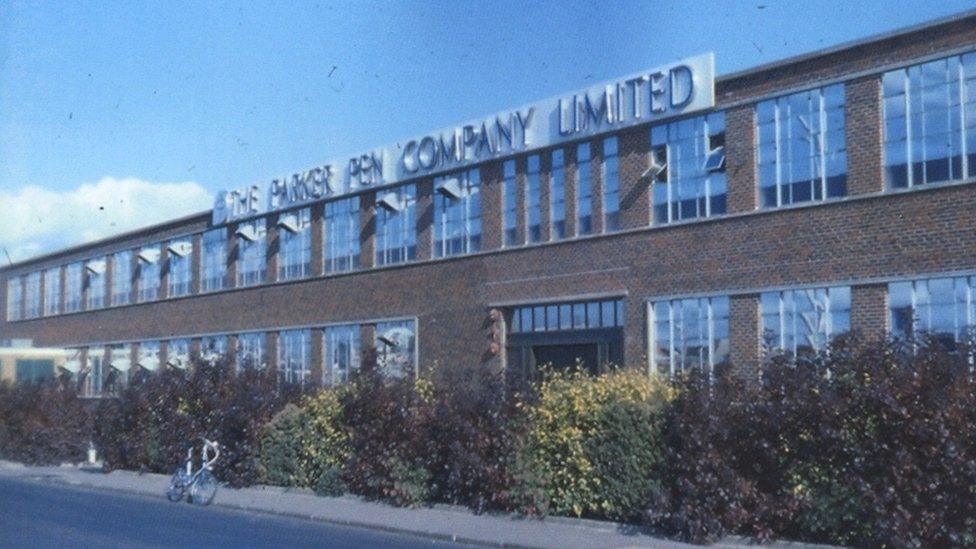
Having started life in ex-army huts, Newhaven's Parker Pen factory (pictured here in 1980) became one of the largest pen factories in Europe
Press Play Films, a film and animation workshop provider in East Sussex, will bring together different generations to record oral histories and create stop-motion animations with clay to uncover the rich working-class history of Newhaven's Parker Pen factory.
Having started life in a few ex-army huts, the factory gradually became one of the largest and most technically advanced pen factories in Europe, serving as the distribution centre for Parker products for the whole of the continent.
The once-thriving site had a 1,200-strong workforce, but after gradual dismantling the factory was demolished in 2014.
The project will encourage intergenerational understanding of Newhaven's community heritage and industrial past, with pupils involved in interviewing ex-Parker employees before these memories disappear.
Birmingham's roller-skating history
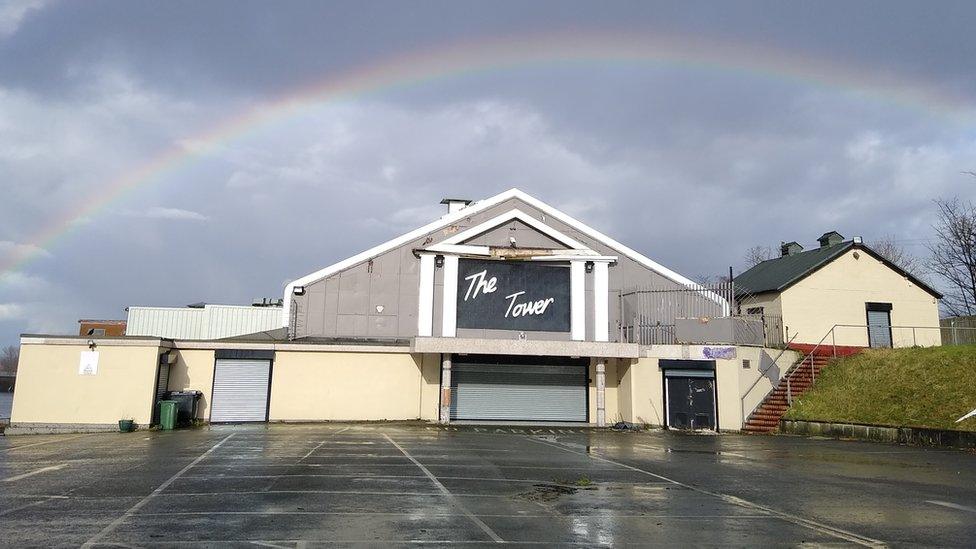
The Tower Ballroom, built in 1871 at the Edgbaston Reservoir, hosted skating until its final closure in 2017
Rolling at the Tower Ballroom aims to create a community documentary about the history of roller-skating in Birmingham, which started in 1871 with the building of the Tower Ballroom at the Edgbaston Reservoir in Ladywood.
The venue hosted skating until its final closure in 2017, and was recently demolished to make space for new flats.
Historic England said locals felt redevelopment in Ladywood was threatening to erase its strong working class history which dates back to Victorian times.
Today it still has a high level of social housing and is one of the youngest and most diverse areas in the city.
Four decades of Chinatown
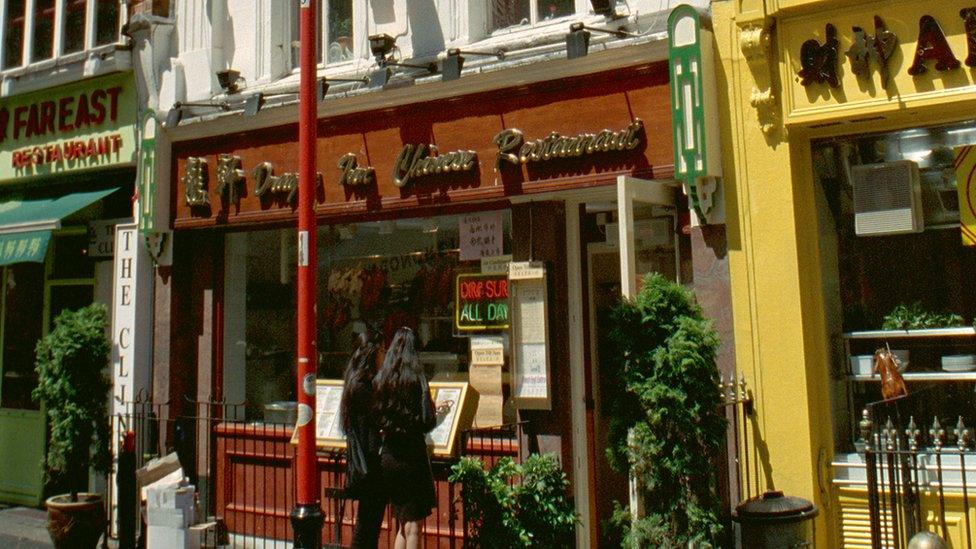
40 Years, 40 Stories will record the stories of those who have worked in London's Chinatown (pictured here in 2001)
Cultural centre China Exchange will chart four decades of life in London's Chinatown by interviewing people who have worked in the area since its official designation in 1985.
The area of the West End is home to more than 150 businesses and a place of work for thousands of ethnically, culturally and linguistically diverse Londoners.
The project - 40 Years, 40 Stories: The Everyday Heritage of People Working in London's Chinatown - hopes to offer a more nuanced and inclusive understanding of the neighbourhood.
Gypsy, Roma and Traveller tales
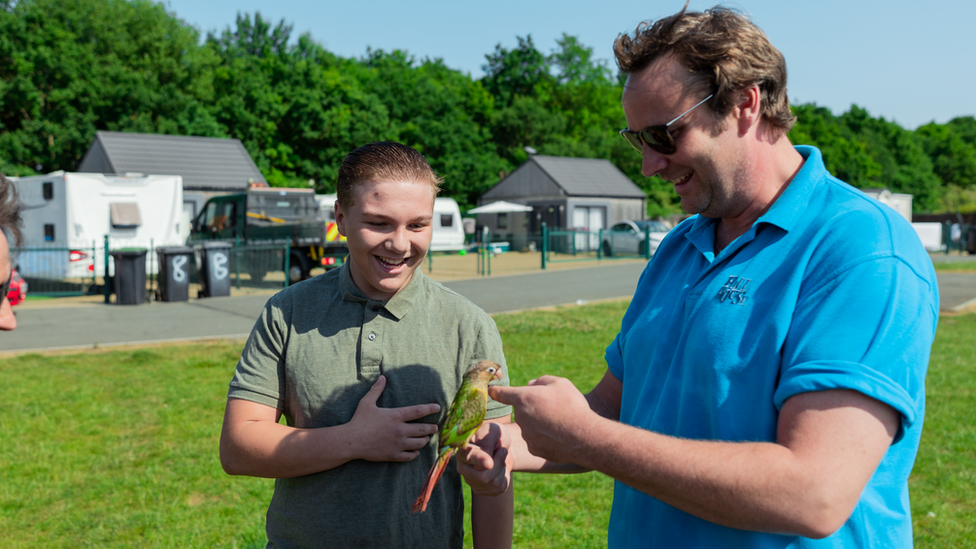
A year-long project will see Gypsy, Roma and Traveller communities create a touring exhibition on their heritage
Gypsy and Traveller Tales in Greensand Country will focus on the co-creation of a touring exhibition telling the story of Gypsy, Roma and Traveller (GRT) communities living in Greensand Country in Central Bedfordshire.
Run by charity and arts organisation Full House Theatre, the year-long project will see children and families from GRT communities create content alongside visiting artists, forming a body of work to be shared with the public.
Families will help to choose the artists involved and the final exhibition of the work produced together will tour three local libraries.
- Published21 February 2024
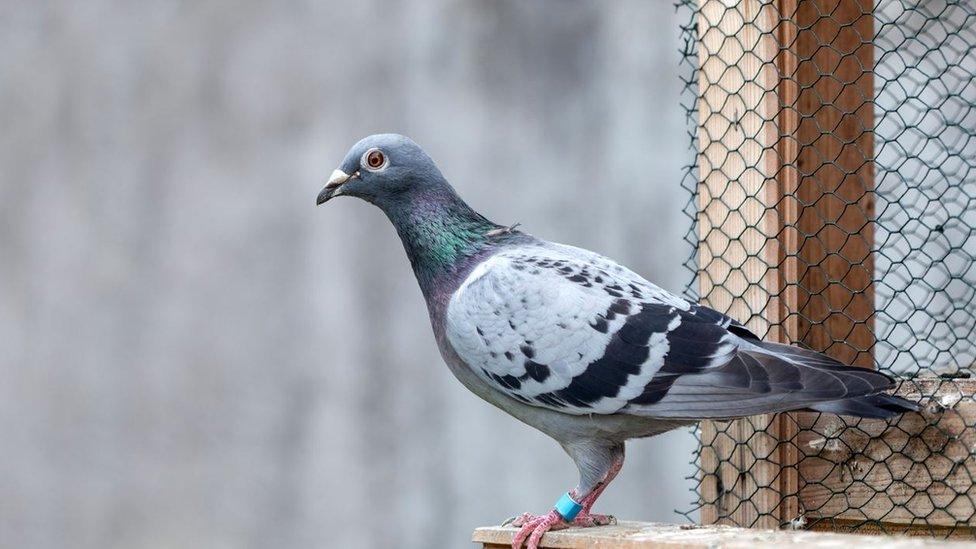
- Published21 February 2024
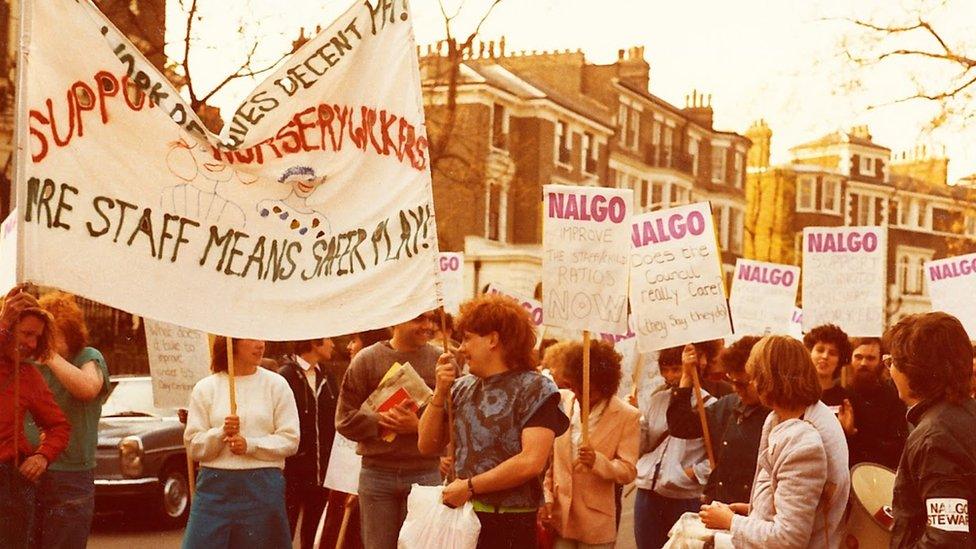
- Published21 February 2024
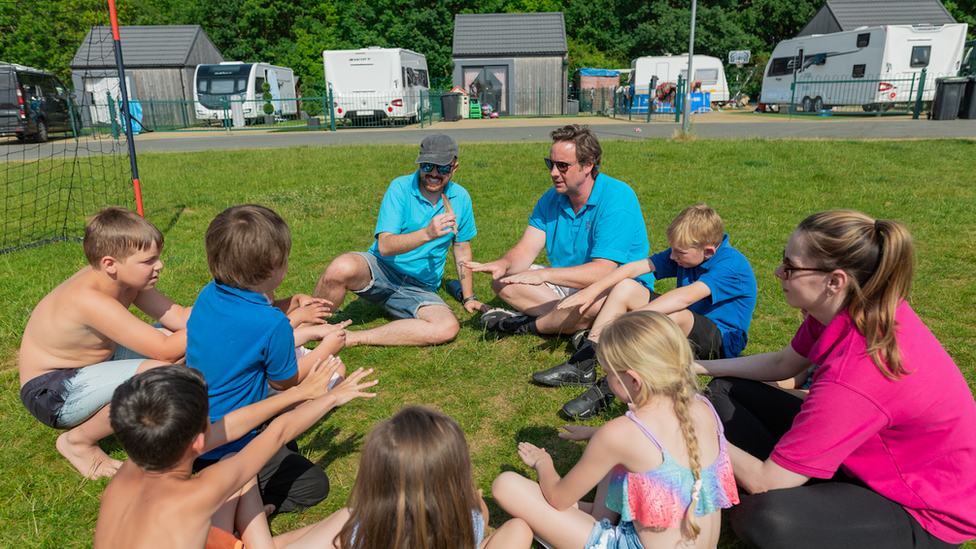
- Published19 February 2024
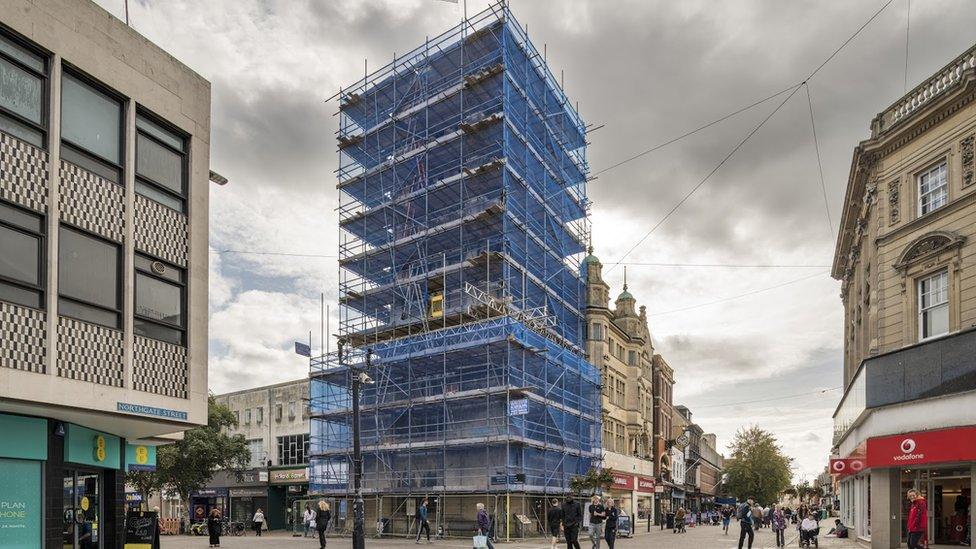
- Published17 February 2024
